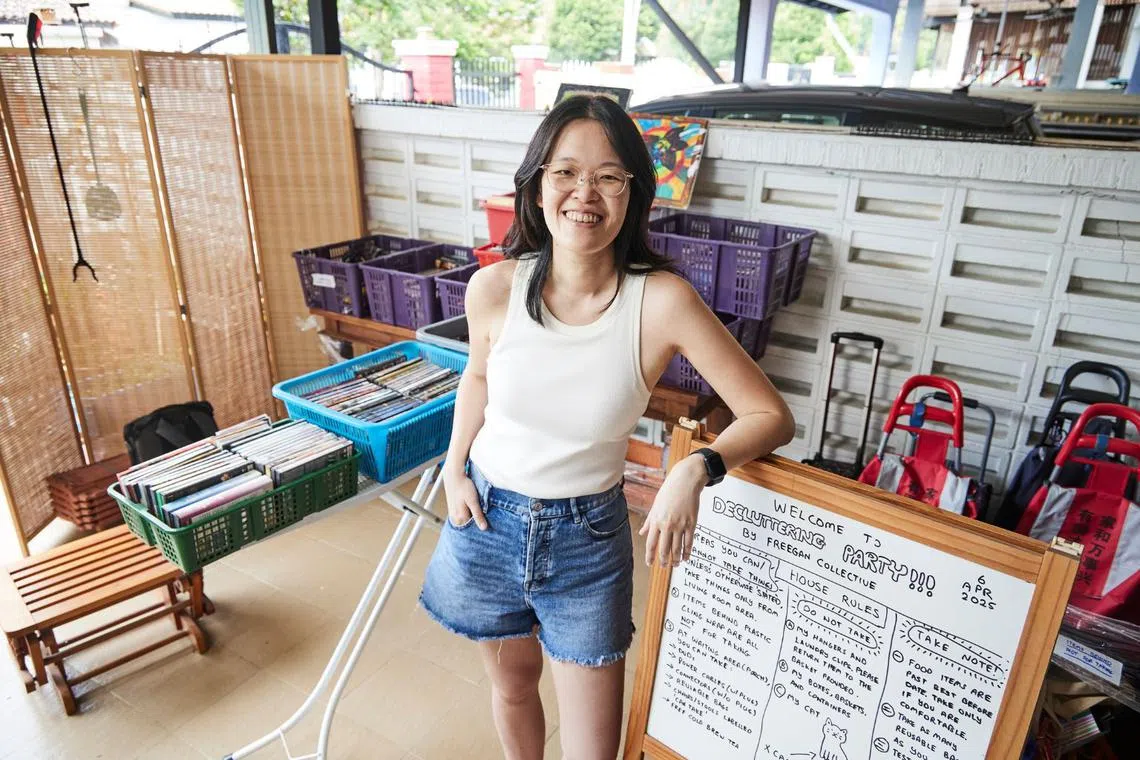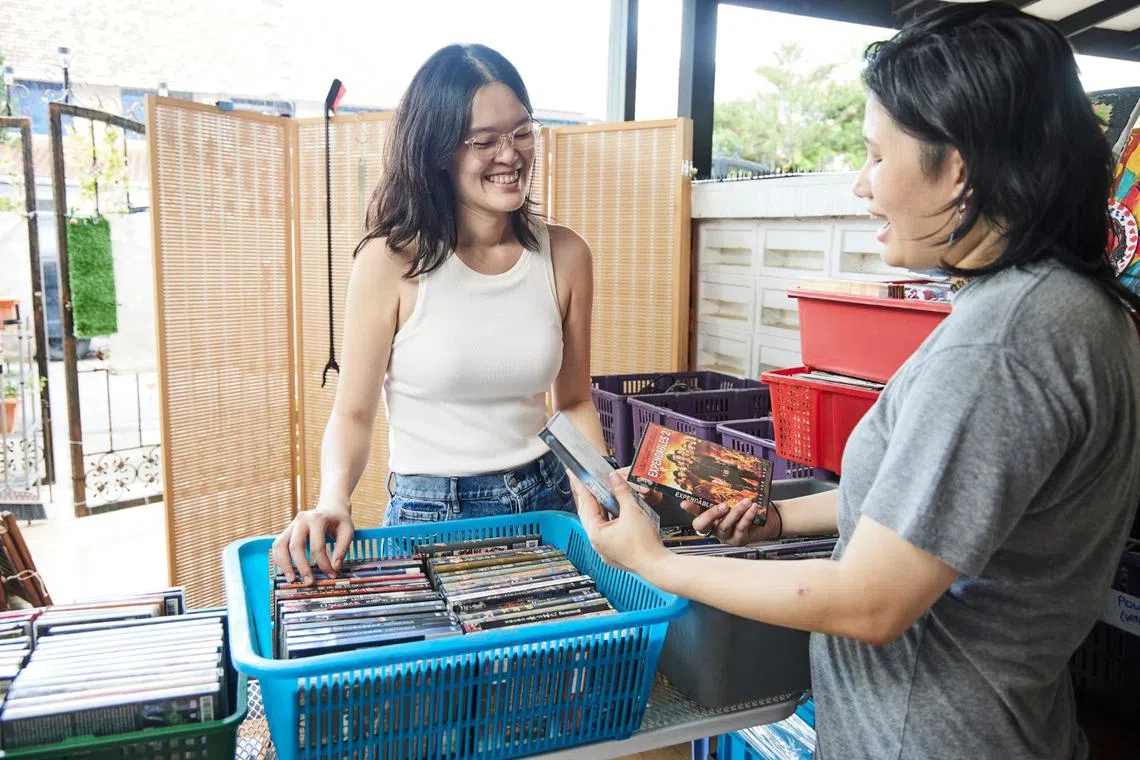Your S’pore Story: ‘We’re not cheap or poor – it’s just a matter of using your money wisely’
As one of the pioneers of the freegan movement in Singapore, this new mother not only reduces waste but also helps her community and the environment
Sign up now: Get ST's newsletters delivered to your inbox

Ms Ng Xin Yi is part of a freegan community in Singapore that shares surplus food and items to reduce waste.
PHOTO: SPH MEDIA
When most people need groceries, household items or clothes, they head to the shops – but not Ms Ng Xin Yi.
The 37-year-old has embraced a freegan
Watch her video here.
The new mum shares that many of her baby’s belongings are second-hand or hand-me-downs. Still, there are some items she buys brand-new – like pacifiers and milk bottles – whenever necessary.
For herself, she relies on food rescues – unsold pastries from bakeries, surplus vegetables from grocers – and has amassed a five-year supply of soap. These items were all passed on through her network of fellow freegans.
Trained in design and research, Ms Ng recently left her job as a consultant to care for her three-month-old full-time. But she remains deeply involved in the freegan community, organising ground-up efforts like decluttering parties – garage sale-style events where everything is free.
She also works with social service agencies to empower vulnerable groups, such as residents of homeless shelters. Ms Ng shares more about her mission and clears up some common misconceptions about freegans.

By organising decluttering parties, Ms Ng helps pre-loved items find new homes instead of them being thrown away.
PHOTO: SPH MEDIA
“I’ve been using hand soap to wash my body. If it can be used to wash hands, it can also wash the body, right? To me, soap is soap. I’m not particular what brand it is, as long as there’s something I can use. But if I need a certain item, such as toothpaste for sensitive teeth, I will still buy it.
It’s the same for food. I’ll just eat what’s available to reduce food waste. There are a lot of win-win situations, like I get to save money and I get to support sustainability. It also makes me more creative in my cooking, because sometimes I get ingredients that I don’t usually buy.
I’ve always been interested in the environment. In 2010, when I was in university, I tried to practise zero waste by reducing single-use plastics and bringing my own container for food. But it was quite restrictive. Later, I discovered freeganism: It just feels more abundant.
Over time, our growing freegan community has established networks for sharing food. We have a WhatsApp group with over 100 people in it, and we all take turns to collect rescued food. Now? I have enough free food that, for more variety, I can buy different kinds of food.
Some people think we have no options, but in fact, I have more. I can choose to buy or I can choose to get the free stuff. We’re also not cheap or poor – it’s just a matter of using your money wisely. Why buy things if you can get them for free?
These things aren’t of poor quality either. In fact, some brands are so ‘atas’ that we didn’t have the chance to try them before. And no, we’re not constantly foraging. We have a wide network of freegans and all the different distribution centres – getting what we need is as quick as popping over to the store.
Why decluttering parties? A lot of people think, getting rid of things is very ‘sayang’ (a waste in Malay), or listing everything individually on Carousell is very tiring. But with decluttering parties, it’s a lot less time and effort. It enables us to give away many items at once, without the hassle of listing, coordinating and following up with individual takers.
I also unexpectedly connected with more people this way, as I’m actually quite introverted.
Right now, I’m just trying to survive parenthood. Maybe when my son grows up, he’ll realise that his parents are actually a bit weird. But that’s okay. Everyone has their quirks. Ours just happens to come with a lot less waste.”
For generations, The Straits Times has told The Singapore Story. To celebrate our 180th anniversary, we’re putting the spotlight on our communities – for you to tell us yours, from all around Singapore. Discover the stories from your neighbourhood as the series continues at Your Singapore Story


